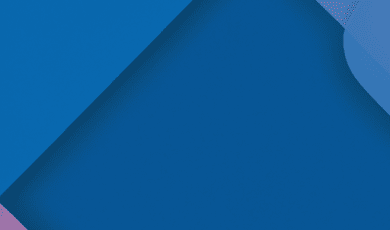
Why Web Tools and SaaS Platforms Need Certified French Translation Services
Unlocking growth and global impact through precise French localization
Introduction
As the digital landscape continues to expand, web-based tools and SaaS (Software as a Service) platforms are becoming indispensable in transforming how individuals and organizations work, collaborate, and innovate. With technology dissolving geographical boundaries, the demand for seamless, multilingual user experiences is at an all-time high. French, as one of the most spoken languages in the world and an official language in numerous countries, occupies a unique position in this global conversation. For web tool developers, product managers, and digital enterprises, investing in certified French translation services is no longer just an option—it's a strategic necessity.
In this post, we delve into the critical reasons why accurate, certified translations are especially vital for French-speaking audiences, examine the risks of settling for subpar localization, and explore practical ways in which embracing quality translation opens new horizons for SaaS platforms and web-based tools.
The Rise of SaaS and Web-Based Tools in a Multilingual World
The SaaS industry is forecast to reach $700 billion globally by the end of the decade, with web browser tools and platforms accounting for a significant share of that growth. The beauty of SaaS lies in its accessibility; users from Paris, Montreal, Brussels, Abidjan, or Dakar can all work together on the same platform with just an internet connection. Yet, language remains a fundamental barrier to full participation—especially for markets where English is not the primary language.
French is the official language in 29 countries, spanning Europe, Africa, North America, and the Caribbean, with over 300 million speakers worldwide. France is also the third largest SaaS market in Europe, and French-speaking Africa is rapidly digitizing. If your SaaS platform or browser-based tool is only available in English (or features a poorly translated version in French), you're leaving significant market share untapped. Offering an expertly crafted French interface is about providing true accessibility and respect to your users—building trust, engagement, and loyalty in the process.
Why Certified French Translation Services Are Essential
It may be tempting to rely on automated translation tools or generic freelance translators for localization efforts. However, the complexity and nuance of the French language call for specialized, certified French translation services. Here are four key reasons why this is vital for your web-based tools and SaaS products:
- Complexity of the French Language: French is renowned for its grammar, idioms, formality levels, and regional variations. A literal, non-contextual translation can quickly turn your interface into a source of user frustration. French is considered one of the most complex languages to accurately translate, with challenges ranging from gendered nouns and verb conjugations to subtle cultural references. Certified experts not only translate but localize—ensuring terminology, tone, and technical jargon make sense to native speakers.
- Regulatory Compliance and Professionalism: Many SaaS tools, especially those dealing with legal, financial, healthcare, or educational data, must meet strict regional compliance requirements. Certified French translations are often a prerequisite for regulatory approval. Moreover, professionalism in communication reassures enterprise customers and partners in Francophone markets—minimizing risks of legal misunderstandings, contractual disputes, or reputation damage.
- Boosting User Experience & Retention: SaaS is fundamentally about recurring revenue and long-term relationships. An awkward or unclear French translation sabotages product adoption and increases churn. On the other hand, clear, culturally attuned French localization supports onboarding, enables training, and enhances day-to-day usability for teams in Francophone regions. This leads to higher Net Promoter Scores, fewer support tickets, and better business outcomes.
- Market Expansion & Competitive Differentiation: As SaaS markets saturate in English-speaking countries, growth lies in international expansion. According to Statista, French enterprises continue to embrace SaaS rapidly, with adoption rates growing annually. Businesses that offer certified, high-quality French translations are poised to outcompete those relying on generic or automated solutions. In an era where first impressions are digital, investing in quality translation is a differentiator that can drive U.S. or U.K. startups to new levels of European and African market penetration.
Many leading French enterprises and public sector organizations expect software tools to meet the highest language standards. Partnering with professionals ensures that your web tool's interface, support documentation, and even legal disclaimers are not only understandable but also resonate culturally with French-speaking users.
Risks of Subpar and Non-Certified Translation
In an age where users have ample choices, a single poor translation can quickly erode trust and damage your brand. Some of the most common (and costly) mistakes from using non-certified translation services include:
- Literal Translations: Automated tools often produce sentences that sound unnatural, miss idiomatic expressions, or fail to capture technical nuance. This makes your app appear unprofessional or unreliable.
- Omissions or Ambiguities: Missing key privacy/legal terms or providing vague error messages due to mistranslation can create confusion—leading to lost sales and increased support costs.
- Cultural Faux Pas: Humor, graphics, metaphors, or even color choices sometimes carry different meanings across Francophone cultures. Certified translators prevent these missteps by adapting language and tone accordingly.
- Compliance Failures: For SaaS tools subject to GDPR, HIPAA, or national regulations, a non-certified translation could trigger audits and fines, especially if contractual terms are mistranslated.
In contrast, certified French translation services offer quality assurance, consistency, and the credibility needed when expanding to French-speaking markets.
How to Integrate Certified Translation into Your Web Tool Development Process
For modern SaaS teams, integrating certified translation isn’t a one-off project—it’s an ongoing process aligned with agile releases and user feedback. Here’s how to build translation into your product life cycle:
- Early Planning: Consider internationalization at the design stage. Ensure your database, UI framework, and content management system can support multilingual content and localization workflows.
- Select Experienced Partners: Invest in certified French translation professionals with a strong track record in SaaS or technology localization. Check references and ask for sample projects relevant to your product domain.
- Create a Localization Glossary: Work with your translation partner to create an approved glossary of industry-specific terms, usage guidelines, and tone of voice—ensuring consistency across all releases.
- Leverage Technology: Use translation management software and APIs to automate exchanges with translators, track changes, and test the French-language UI before each update.
- User Testing & Feedback: Involve French-speaking beta testers from your target markets to flag awkward phrases or usability issues prior to launching new features.
Success Stories: Real-World Impact
Leading SaaS companies like Atlassian, Slack, and HubSpot attribute portions of their international growth to early investments in certified language translation. For example, HubSpot saw its French customer base triple after localizing onboarding flows, in-app guides, and support documentation with certified translators.
Even smaller web-based tools and browser extensions can experience dramatic increases in adoption. French-speaking users are often early adopters of digital tools in education, finance, and healthcare—segments where certified translation builds not just functionality, but trust. The result? Higher conversion rates, improved NPS metrics, and more efficient customer support.
Conclusion: Invest in Quality, Reap Global Rewards
As the marketplace for SaaS and browser-based tools grows more crowded and competitive, delivering a seamless, native-language experience sets your platform apart. Investing in certified French translation services is about ensuring usability, compliance, and cultural alignment for millions of potential users. The stakes are high—ranging from legal liabilities to the genuine opportunity for exponential growth in the Francophone world.
Don’t settle for “good enough” when it comes to language. With certified experts on your side, your web tool or SaaS platform can flourish across borders, speaking directly to users’ needs and aspirations—in their own language.
For more information about why French is a complex language to translate and the importance of professional help, read this insightful discussion on Quora.








